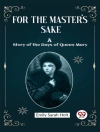In ‘Mr. Midshipman Easy, ‘ Frederick Marryat presents a captivating narrative that follows the adventurous journey of the young protagonist, Mr. Easy, who embarks on a naval career in the British Navy during the early 19th century. The novel is celebrated for its vivid portrayal of maritime life, detailing the rigorous discipline of the naval academy and the trials of seafaring, characterized by Marryat’s vivid and engaging prose. This work bridges the gap between romantic adventure and realist depiction, serving as both a compelling coming-of-age story and an insightful commentary on naval traditions, societal norms, and the complexities of duty and honor amidst the backdrop of the Napoleonic Wars. Frederick Marryat, a former naval officer himself, drew upon his personal experiences in the Royal Navy to pen this semi-autobiographical novel. His firsthand knowledge of life at sea and unique perspective on naval hierarchy bestowed authenticity to his fictional narrative, allowing him to explore themes such as independence, bravery, and the moral quandaries faced by young seamen. Marryat’s comprehensive understanding of naval life is further enhanced by his literary ambition to engage and entertain, making his work accessible to a diverse readership. ‘Mr. Midshipman Easy’ is a must-read for enthusiasts of maritime literature and historical fiction alike. Marryat’s richly detailed storytelling and relatable characters provide readers with an immersive escape into the naval world of the 19th century, highlighting the importance of courage and self-discovery. This novel remains a timeless exploration of youth and adventure, inviting readers to learn about the trials faced by those who served at sea.
เกี่ยวกับผู้แต่ง
Captain Frederick Marryat (1792–1848) was a British Royal Navy officer, a novelist, and an early pioneer of the sea story. He is arguably most celebrated for his semi-autobiographical novel ‘Mr. Midshipman Easy’ (1836), which depicts the comedic adventures of Jack Easy, a young man who joins the Royal Navy and learns about life at sea, discipline, and the social order. Marryat’s literary style merged his maritime experience with a humorous and often satirical take on the naval life of his time, making his works appealing to a broad readership. Born on July 10, 1792, in London, Marryat enjoyed a prolific career in the Navy before he embarked on his writing journey. He joined the Navy at the age of 14 and served with distinction during the Napoleonic Wars. After his military career, Marryat turned to writing to share his knowledge and stories of naval life, publishing a series of sea tales that won him acclaim. Apart from ‘Mr. Midshipman Easy’, Marryat’s notable works include ‘Peter Simple’ (1834) and ‘The Children of the New Forest’ (1847), which have become classics in the nautical adventure genre. Marryat’s influence on later maritime authors, including Joseph Conrad and Herman Melville, underscores his significant contribution to literature. He injected authenticity into the genre, shaped by his direct experience as a sailor and his keen understanding of the human condition.












